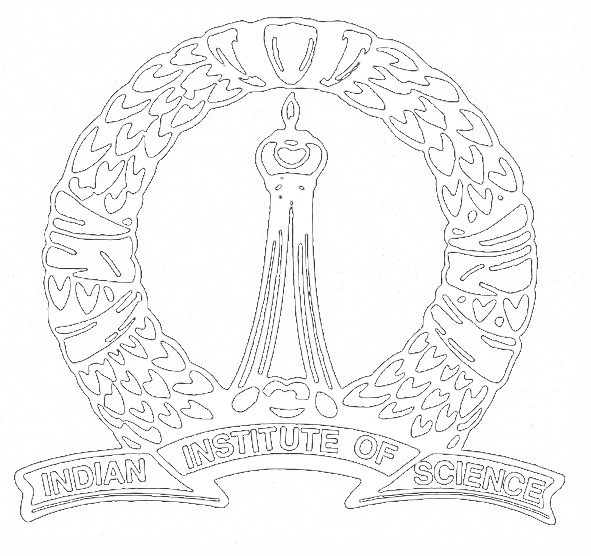PhD Thesis defence
Title: Trace Estimate For The Determinant Operator and K-Homogeneous Operators
Speaker: Paramita Pramanick (IISc Mathematics)
Date: 01 February 2021
Time: 4 pm
Venue: Microsoft Teams (online)
For a commuting $d$-tuple of operators $\boldsymbol T=(T_1, \ldots , T_d)$ defined on a complex separable Hilbert space $\mathcal{H}$, let $\big [\big [ \boldsymbol T^*, \boldsymbol T \big ] \big ]$ be the $d \times d$ block operator $\big (\big ( \big [ T_j^*,T_i] \big )\big )$ of commutators: $[T_j^*,T_i] := T_j^* T_i - T_i T_j^*$. We define an operator on the Hilbert space $\mathcal{H}$, to be designated the determinant operator, corresponding to the block operator $\big [\big [ \boldsymbol T^*, \boldsymbol T \big ] \big ]$. We show that if the $d$-tuple is cyclic, the determinant operator is positive and the compression of a fixed set of words in $T_j^*$ and $T_i$ – to a nested sequence of finite dimensional subspaces increasing to $\mathcal{H}$ – does not grow very rapidly, then the trace of the determinant of the operator $\big (\big ( \big [ T_j^*,T_i] \big )\big )$ is finite. Moreover, an upper bound for this trace is given. This upper bound is shown to be sharp for a certain small class of commuting $d$-tuples. We make a conjecture of what might be a sharp bound in much greater generality and verify it in many examples.
Let $\Omega$ be an irreducible classical bounded symmetric domain of rank $r$ in $\mathbb{C}^d$. Let $\mathbb{K}$ be the maximal compact subgroup of the identity component $G$ of the biholomorphic automorphism group of the domain $\Omega$. The group $\mathbb{K}$ consisting of linear transformations acts naturally on any $d$-tuple $\mathbf{T}$ of commuting bounded linear operators by the rule: \begin{equation} k \cdot \mathbf{T} = \big( k_1(T_1, \dots, T_d), \dots, k_d(T_1, \dots, T_d) \big), \ k \in \mathbb{K}, \end{equation} where $k_1(\mathbf{z}), \dots, k_d(\mathbf{z})$ are linear polynomials. If the orbit of this action modulo unitary equivalence is a singleton, then we say that $\mathbf{T}$ is $\mathbb{K}$-homogeneous. We realize a certain class of $\mathbb{K}$-homogeneous $d$-tuples $\mathbf{T}$ as a $d$-tuple of multiplication by the coordinate functions $z_1, \dots, z_d$ on a reproducing kernel Hilbert space $\mathcal{H}_K$. (The Hilbert space $\mathcal{H}_K$ consisting of holomorphic functions defined on $\Omega$, with $K$ as reproducing kernel.) Using this model we obtain a criterion for (i) boundedness, (ii) membership in the Cowen-Douglas class, (iii) unitary equivalence and similarity of these $d$-tuples. In particular, we show that the adjoint of the $d$-tuple of multiplication by the coordinate functions on the weighted Bergman spaces are in the Cowen-Douglas class $B_1(\Omega)$. For an irreducible bounded symmetric domain $\Omega$ of rank 2, an explicit description of the operator $\sum_{i=1}^d T_i^* T_i$ is given. Based on this formula, a conjecture giving the form of this operator in any rank $r \geq 1$ was made. This conjecture was recently verified by H. Upmeier.
- All seminars.
- Seminars for 2021
